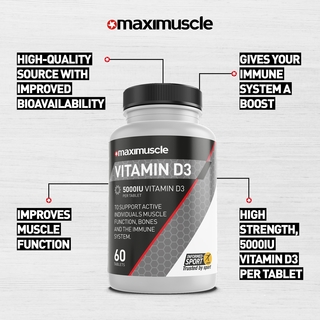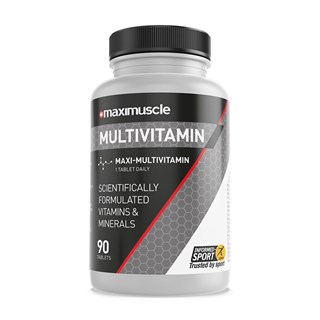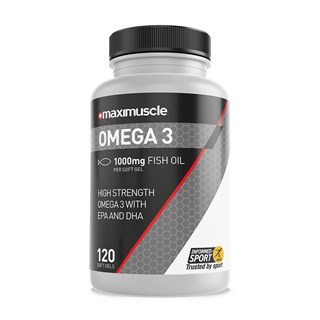Vitamin D - The Sunshine Vitamin
In the UK, summer months provide us with the sunshine we need to maintain our vitamin D levels. However, with little sunshine between October and March it is important we find our daily dose of the “sunshine vitamin” elsewhere. We have enlisted the help and knowledge of Francesca Baker from St Mary’s University Twickenham London to help us further understand the growing interest in vitamin D.
Vitamin D is naturally present in only a few foods, added to others, and available as a dietary supplement. It is virtually impossible to get enough vitamin D from food alone, as such, the Scientific Advisory Committee on Nutrition (SACN)(1) recommend that adults take a daily vitamin D supplement of 400IU (10μg) during the winter months, in order to prevent a deficiency. The UK Department of Health promote benchmarks for adequate nutrient amounts, known as Reference Nutrient Intake (RNI). This refers to the amount of a nutrient that is sufficient for the needs of the majority (97.5%)(2). This being 10μg for vitamin D.
Vitamin D through diet
Vitamin D is naturally present in a small variety of food items. Foods that include vitamin D are:
- Egg yolks
- Beef liver
- Oily fish, e.g., salmon and tuna
As a benchmark, an average egg has 37IU (0.92μg), one pan-friend liver (85 g) has 42 IU (1.05μg), and one cooked salmon fillet (94g) has around 570IU (14.2μg) of vitamin D (3). Eating fortified dairy products, fortified cereals, and mushrooms that have been specially grown under UV light, will also help to increase vitamin D intake.
Vitamin D for Regular Exercisers & Athletes
For regular exercisers and athletes, vitamin D has an impact on more than just everyday health, proving to have potential performance benefits. Vitamin D supplementation in athletes has shown to positively support muscle strength and physical performance (4).
For everyone, maintaining adequate levels of vitamin D is important for immune system support; for individuals that are training frequently and at a high intensity, supporting their immune system is essential in order to prevent illness and injury (5). With active individuals at risk of vitamin D deficiency, there is added benefit to supplementing with a higher dose. Maximuscle Vitamin D3 tables contain 5000IU (125μg), containing the recommended dose and beyond.
Are you Vitamin D deficient?
In reality, deficiency maybe going unnoticed. People at increased risk of deficiency include indoor dwellers; does the sun see your skin? Pregnant women, those watching their waistline on a restrictive diet, smokers, and dark-skinned individuals. About a third of the UK population is deficient in vitamin D. Signs might include bone pain and muscle weakness. Severe vitamin D deficiency can lead to osteomalacia (softening of the bones).
What are the benefits of Vitamin D?
Vitamin D has lots of potential benefits; a quick google search and you will be inundated with information as to why vitamin D is increasingly talked about. Below are the three main European Food Safety Authority (EFSA) claims that are certified and allowed to be present on packaging:
- Assists absorption of calcium and phosphorus, helping to maintain and build healthy bones and muscles.
- Supports the immune system and cell division.
- Helps maintain muscle function.
What’s not to like? It is becoming increasingly apparent that maintaining sufficient vitamin D levels throughout all stages of life supports optimal health.(6)
Maximuscle Vitamin D3 supplement
A quick trip to the local supermarket and you will find a shelf full of pots of vitamin D, but why should you choose Maximuscle?
- Maximuscle Vitamin D3 increases blood serum levels to a greater extent and maintains these higher levels longer than vitamin D2.
- Provides 5000IU (125μg) of vitamin D3 in each tablet, reaching the recommended dose and beyond.
- Active individuals at risk of a deficiency may benefit from supplementing with a higher dose.
So....
It has to be said that there are brilliant benefits of maintaining sufficient vitamin D levels throughout all stages of life in order to support optimal health. Looking after our immune system is vital to manage the demands of modern-day life. For regular gym goers and athletes, staying clear of injury is also so important. With the support of vitamin D, muscle function is efficient and so physical performance is maintained. What have you got to lose? Take 1 tablet a day of Maximuscle Vitamin D3 to support healthy bones and chattering teeth this winter!
References
(1) Scientific Advisory Committee on Nutrition. Vitamin D and Health. London; SACN (2016). www.gov.uk/government/publications/sacn-vitamin-d-and-health-report.
(2) Reference Nutrient Intakes from Department of Health, Dietary Reference Values for Food Energy and Nutrients for the United Kingdom, HMSO, 1991.
(3) The Conscious Life. (2009-2021). Top 5 Foods High in Vitamin D. https://theconsciouslife.com/foods-high-in-vitamin-d.htm.
(4) Lars Rejnmark. (2011). Effects of Vitamin D on Muscle Function and Performance: A Review of Evidence from Randomized Controlled Trials. Therapeutic Advances in Chronic Disease (2011), 2(1) 2537.
(5) Mirian de la Puente Yagüe, Luis Collado Yurrita, Maria J. Ciudad Cabañas and Marioa A. Cuadrado Cenzual. (2020). Role of Vitamin D in Athletes and Their Performance: Current Concepts and New Trends. Nutrients. 2020 Feb, 12(2): 579.
(6) William B. Grant, and Michael F. Holick. (2005). Benefits and Requirements of Vitamin D for Optimal Health: A Review. Alternative Medicine Review. 10(2): 111.

















